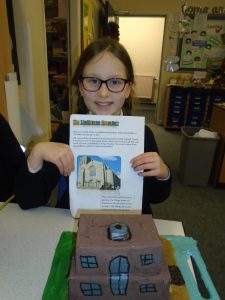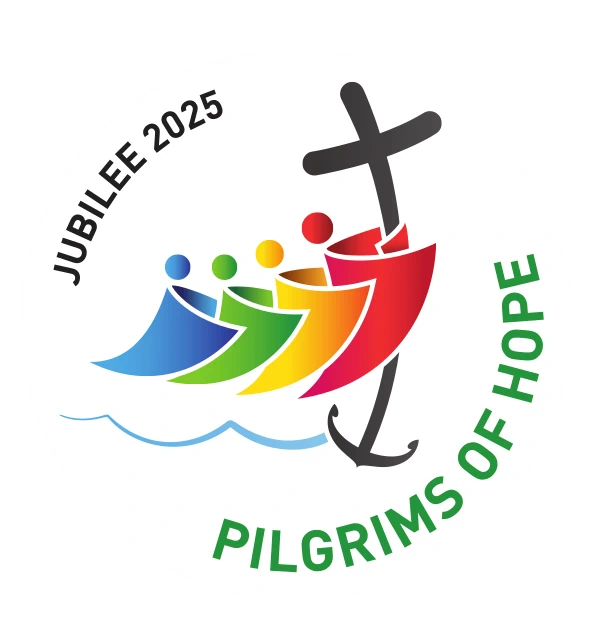Aims & Objectives
The aim of history teaching here at St Mary’s Catholic Voluntary Academy is to stimulate the children’s interest and understanding about the life of people who lived in the past. Reflecting on successes and mistakes of the past helps children develop their understanding of present. We teach children a sense of chronology, and through this they develop a sense of identity, and a cultural understanding based on their historical heritage. Thus they learn to value their own and other people’s cultures in modern multicultural Britain and, by considering how people lived in the past, they are better able to make their own life choices and gain confidence in expressing their own ideas.
In our school, history makes a significant contribution to citizenship education by teaching about the manner in which Britain developed as a democratic society. We teach children to understand how events in the past have influenced our lives today; we also teach them to investigate these past events and, by so doing, to develop the skills of enquiry, analysis, interpretation and problem-solving.
The objectives of teaching History at St Mary’s Catholic Voluntary academy are: –
- To stimulate children’s curiosity into finding out more
- To develop knowledge and understanding of how people lived in other times and how those times were different from today.
- To enable children to know about significant events in British history, and to appreciate how things have changed over time.
- To develop a sense of chronology.
- To encourage thinking about cause and effect, and how the past influences the present to experience a range of representations of the past.
- To develop the ability to communicate historical knowledge in a variety of forms.
- To have some knowledge and understanding of historical development in the wider world.
- To help children understand society and their place within it, so that they develop a sense of their citizenship and cultural heritage.
- To develop in children the skills of enquiry, investigation, analysis, evaluation and presentation.
How the Subject is Planned
We use the National Curriculum scheme of work as the basis for our planning in history, but we have adapted this to our local context, building on the successful units of work already in place. We ensure that there are opportunities for children of all abilities to develop their skills and knowledge in each unit, and we plan progression into the scheme of work, so that the children are increasingly challenged as they move through the school.
Foundation Stage
In Foundation Stage children develop an understanding of the passage of time. Carefully planned activities and experiences enable young children to develop the language of time. They are supported to explore their own personal and family history through an exploration of key events such as birthdays, celebrations and festivals. Through a balance of child-initiated and adult directed activities children are able to access a range of experiences such as role play, stories, oral history and exploring artefacts. These experiences enable young children to develop an understanding of what history is, stimulating curiosity and interest and developing chronological knowledge together with the skills of questioning and enquiry that provide a strong foundation of for history learning in Key Stage One and beyond.
Key Stage One and Two
See Knowledge Matrix documents for overview of themes and topics covered in Key Stages One and Two.
Teaching Approaches
The learning environment in History is managed in such a way as to facilitate different styles of learning.
Opportunities are made for:
- whole class teaching
group work, organised according to appropriate criteria (i.e. ability, mixed ability, friendship, etc) - one to one teaching
- conferencing
- collaborative and active learning in pairs or groups
independent learning - Classrooms provide a stimulating and purposeful learning environment, including thought provoking and stimulating displays that include knowledge webs and helpful resources that document the learning journey through History in the class, including timelines both whole class and individual relevant to the current topics and across previous topics from previous year groups. This ensures the further building of a sense of chronology.
Marking feedback reporting
Termly assessments are made of pupils’ work in History in order to establish the level of attainment and progress and to inform future planning. Formative assessment is used to guide the progress of individual pupils. It involves identifying each child’s progress in areas of the History curriculum, determining what each child has learned and what therefore should be the next stage in his/ her learning.
Resources
- Resource file
- History Association resources
- Cross-curricular
Staff are encouraged to develop cross-curricular links with history and other subjects to provide a relevant and meaningful curriculum for pupils.
Links to Community, Locality and Trips
- Year 2 visit the Stockport Hat Museum
- Year 4 study a local history topic
- Opportunities for visitors from local community to enhance and contribute to topics eg. assemblies and interviews.
Role of the Subject Leader
The Subject leader has a variety of roles. These include:
- Taking the lead in policy development and quality assuring History knowledge webs, resources and History plans throughout the school
- Supporting colleagues in their development and implementation of History knowledge webs, resources and History plans and in assessment and record-keeping activities
- Monitoring progress in History and advising the Senior Leadership Team on action needed; taking responsibility for the purchase and organisation of central resources for History
- Using release time to support colleagues
- Keeping up-to-date through research and continuing professional development and attendance at
- History coordinators meetings



